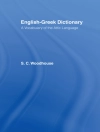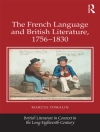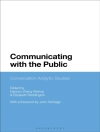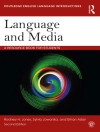This book views the international university as a microcosm of a world where internationalization does not equate with across-the-board use of English, but rather with the practice of linguistic and cultural diversity, even in the face of Anglophone dominance. The globalization-localization continuum manifests itself in every university trying to adopt internationalization strategies. The many cases of language and learning issues presented in this book, from universities representing different parts of the world, are all manifestations of a multidimensional space encompassing local vs. global, diversification vs. Anglicization. The internationalization of universities represents a new cultural and linguistic hybridity with the potential to develop new forms of identities unfettered by traditional ‘us-and-them’ binary thinking, and a new open-mindedness about the roles of self and others, resulting in new patterns of communicative (educational and social) practices.
Daftar Isi
Introduction: Bent Preisler
Part I: English as a lingua franca for Higher Education teaching and learning
Chapter 1 John Airey: The Relationship between Teaching Language and Student Learning in Swedish University Physics
Chapter 2 Christian Jensen et al.: Students’ and Teachers’ Self-Assessment of English Language Proficiency in English-Medium Higher Education in Denmark – a Questionnaire Study
Part II: When the official lingua franca happens to be the first language of the majority: The case of the UK
Chapter 3 Peter Sercombe: Perceptions of Identity and Issues of Concern among International Students in the UK
Chapter 4 Catherine Montgomery: Developing Perceptions of Interculturality: a Troublesome Space?
Chapter 5 David Killick: Internationalising the University: Enabling Selves-in-the-World
Part III: The construction of international perspectives in ‘international’ student group work
Chapter 6 Dennis Day and Susanne Kjærbeck: The construction of international perspectives in ‘international’ student group work.
Chapter 7 Anne H. Fabricius: International Basic Studies in the Humanities: Internationalization and Localization in Four Dimensions
Part IV: Academic writing and literacy in a transnational perspective
Chapter 8 Carole Sedgwick: Crossing Borders: the Feasibility of Harmonising Academic Literacy Standards across Europe
Chapter 9 Ida Klitgård: Plagiarism in the International University: From Kidnapping and Theft to Translation and Hybridity Part V: East and West at the International University
Chapter 10 Hu Xiaoqiong and Chen Yuehong: International Students at China Three Gorges University: A Survey
Chapter 11 Juhyun Back: How far can face and hierarchy affect developing interaction between Korean university students and their supervisors in the UK?
Chapter 12 Roberval T. e Silva and Custódio C. Martins: Intercultural interaction: Teacher and Student Roles in the Classroom of Portuguese as a Foreign Language in Macau, China
Tentang Penulis
Anne H. Fabricius is Associate Professor of English. Her main research area is sociophonetics, with wider interests in quantitative sociolinguistics, sociolinguistic methodology and the analysis of spoken language.












